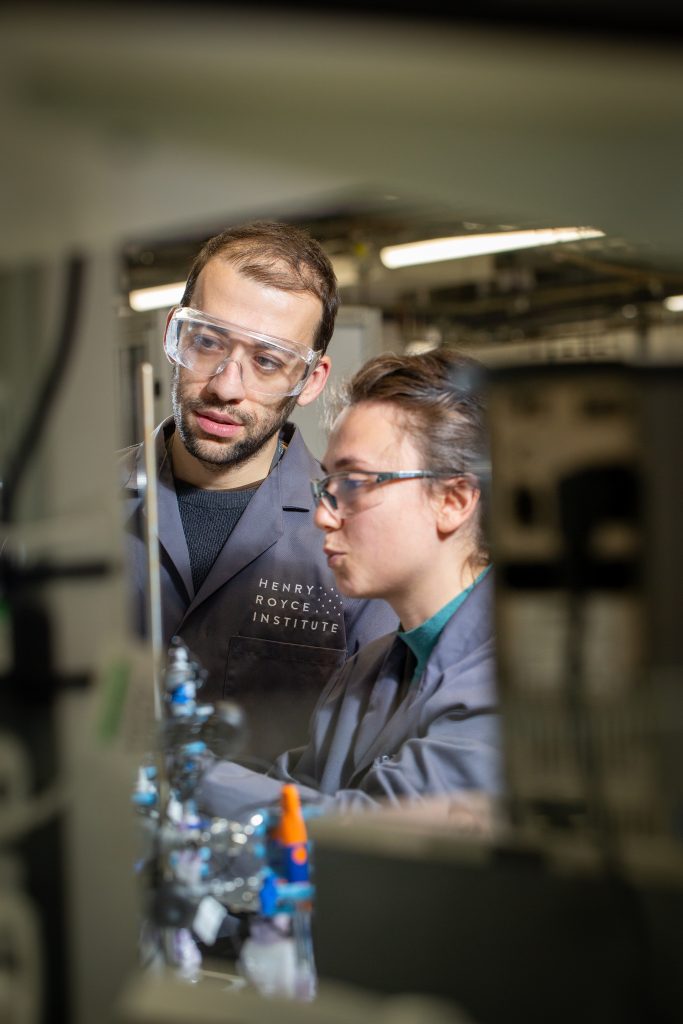Our Challenge Areas
Materials 4.0
Developing new materials remains a slow, risky, and expensive process requiring validation at the lab-scale prior to any form of process scale-up or application related test programme. The Materials 4.0 Challenge Area is accelerating the discovery, innovation, and validation of new materials to address these issues.

Degradation in Structural Materials for Net-Zero
In collaboration with Frazer Nash and The Institute of Corrosion, the work commissioned by Royce in this Challenge Area examined materials degradation across five key industries that will play a pivotal role in the UK transition to net-zero emissions.

Materials for the Energy Transition
In collaboration with the Institute of Physics, Royce explored the critical role of materials in delivering affordable, reliable and above all, green energy. The output was a series of detailed technology roadmaps that set out how UK materials science can contribute to the UK’s low carbon energy transition across a number of areas.

Materials for Photovoltaic Systems
The roadmap associated with this Challenge Area sets out priorities, targets and enablers which have been identified by UK research communities to help achieve a range of PV solutions, from enabling over 50 GW grid-scale solar capacity, to development of zero-carbon buildings, and solar power-integrated automotive applications

Caloric Energy Conversion Materials
This work investigates the decarbonisation of heating and cooling demonstrating that both thermoelectric materials and caloric materials can enable step-change reductions in energy consumption towards supporting the UK’s net-zero goals, as well as creating new product markets and secondary supply chains.

Materials for Bioelectronics in Healthcare
Royce has published a comprehensive report that aims to help future-proof the UK’s bioelectronics for healthcare sector through materials innovation. Materials will play a key role in supplying safe and responsible healthcare solutions in the future and this action plan delivers pathways to building a materials innovation ecosystem that meets the demands of the growing bioelectronics sector.

Materials for Fusion
Royce worked with the UK Atomic Energy Authority to develop a focused technology roadmap for baseline and value-add materials for fusion. The output is a clear commentary on the current strengths and opportunities, technology gaps, and investment requirements.

Materials for End-to-End Hydrogen
Activity in this area is addressing research challenges to enable hydrogen to be produced, stored and distributed at scale, to decarbonise a range of sectors in a 2050 timescale. The initial reports identified a number of materials areas critical to enabling the widespread use of low-carbon hydrogen in a UK context, while maintaining a perspective of opportunities in global deployment.

Materials for Low Loss Electronics
The UK has a strong position in fundamental materials research in this area, however this is not currently exploited towards devices. The roadmap produced in response to this challenge sets out the priorities, targets and enablers which have been identified to help to achieve more efficient electronics in the context of power electronics and computing.

Materials for Low Carbon Production of Hydrogen
The Materials for Low-Carbon Production of Hydrogen and Related Energy Carriers and Chemical Feedstocks roadmap sets out the priorities, targets and enablers which have been identified to help to achieve efficient, durable and sustainable hydrogen production with a net-zero carbon footprint

Thermoelectric Energy Conversion Materials
The UK has a leading research base in thermoelectric materials. Yet commercial exploitation for a range of applications is proving to be an ongoing challenge within the UK despite the rapidly-growing global thermoelectrics market. This roadmap explores pathways towards accelerated deployment of thermoelectric and caloric energy conversion devices.






